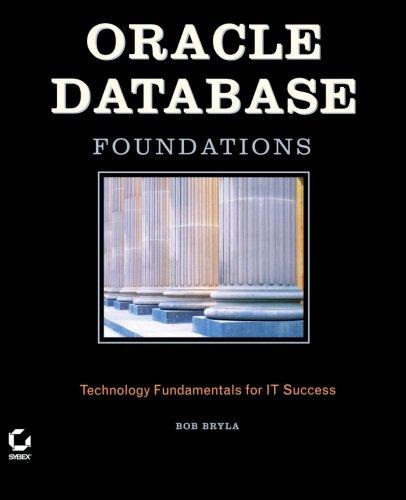Answered step by step
Verified Expert Solution
Question
1 Approved Answer
An integer will be passed to your method. Take that value and add a constant to it . That constant is available within the class,
An integer will be passed to your method. Take that value and add a constant to it That constant is available within the class, to all methods found inside the class.
This is important because this provides a way of providing the same values to multiple methods used by objects based on a particular class. Furthermore, if that constant is found to be private private keyword then it's only available within the class or object and is not directly accessible outside.
In this case, the classwide constant final keyword has a value of Modify the method to permit that value to be added to whatever value is passed to your method.
So if is passed to your method, your method should output ie
In this activity you will see variables like this:
private static final int MYVALUE ;
This is a constant keyword final integer called MYVALUE that can be used in a global context, within the class and between objects that share the same class keyword static Because it is private, MYVALUE cannot be directly accessed from outside the class or an object created from the class.
This touches on the concept of scope. Variables created in one location of your program may not be accessible outside of that location. The scope LinkedIn Learning link limits where you can use variables.
In summary, these keywords are important:
private: the value can't be seen or used outside the class or object.
static: the value is global across multiple methods inside the class or object.
final: the value is not a variable. It won't change. Basically, a constant.An integer will be passed to your method. Take that value and add a constant to it That constant is available within the class, to all methods found inside the class.
This is important because this provides a way of providing the same values to multiple methods used by objects based on a particular class. Furthermore, if that constant is found to be private private keyword then it's only available within the class or object and is not directly accessible outside.
In this case, the classwide constant final keyword has a value of Modify the method to permit that value to be added to whatever value is passed to your method.
So if is passed to your method, your method should output ie
In this activity you will see variables like this:
private static final int MYVALUE ;
This is a constant keyword final integer called MYVALUE that can be used in a global context, within the class and between objects that share the same class keyword static Because it is private, MYVALUE cannot be directly accessed from outside the class or an object created from the class.
This touches on the concept of scope. Variables created in one location of your program may not be accessible outside of that location. The scope LinkedIn Learning link limits where you can use variables.
In summary, these keywords are important:
private: the value can't be seen or used outside the class or object.
static: the value is global across multiple methods inside the class or object.
final: the value is not a variable. It won't change. Basically, a constant.
Step by Step Solution
There are 3 Steps involved in it
Step: 1

Get Instant Access to Expert-Tailored Solutions
See step-by-step solutions with expert insights and AI powered tools for academic success
Step: 2

Step: 3

Ace Your Homework with AI
Get the answers you need in no time with our AI-driven, step-by-step assistance
Get Started


